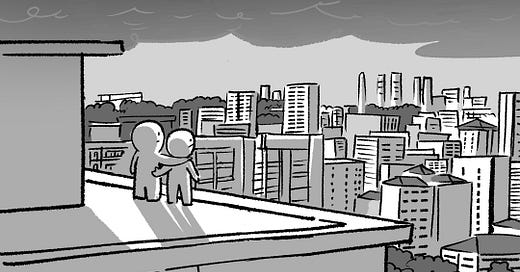The obvious (but unspoken) reason why single income households find HDBs unaffordable
Ignored, but important.
We’re halfway through 2023, and the unhappiness with elevated HDB prices continues in Singapore.
One popular idea that has been gaining traction is that resale HDB prices are clearly unaffordable because single-income households cannot afford them.
This is opposed to the past, where a single breadwinner could raise an entire household.
While this observation is completely valid, this needs to be viewed in some context of one fact:
The rise of dual-income households means higher resale HDB flat prices
In 1980, only 27% of Singapore’s households were categorised as dual-income. Even in the 1990s, I personally remember many of my primary school friends returning home where their moms were homemakers.
By 2015, this has increased to 53.8 per cent. In 2021, this number was 60%.
What has that got to do with single-income households finding resale HDB flats unaffordable?
Simple. Dual-income households have more spending power than single-income households. Some households, known as DINKS (Dual Income, No Kids), have even more disposable income.
When these demographics compete for the same supply of flats in the resale market, they will inevitably outprice single-income households.
Example:
A household earning a combined $10,000 a month can comfortably afford a $500,000 home, based on the 3-3-5 rule. They might even make a higher offer – maybe even 550,000 – to secure their dream home.
Is it any wonder why a single-income household earning $4,000 a month would be outpriced – assuming they’re gunning for the same home?
Income inequality exacerbates this problem
I have a friend whose father raised three daughters to adulthood by driving a taxi from the 1980s- 2000s. This same feat would be extremely challenging today.
As the world becomes more unequal, some jobs that used to pay enough for household raising have seen their incomes decline – think factory assembly workers, clerks, or retail assistants.
Many single-income households that were dependent on these jobs have likely been negatively affected.
Like that how?
Should dual-income households all apologise to their single-income friends for driving property prices up? We don’t think so.
Society has shifted this way, and we’re unlikely to be going back.
Rather, the inclusive thing to do is to cater for single-income households by providing a wide range of affordable housing options.
Pre-COVID, BTO flats estates helped, but COVID supply chain disruptions have thrown a spanner in the works.
Unfortunately, in 2023, when it comes to the resale market, the budget of many single-income households will mean they’re limited to flats that are deemed undesirable by many others (but not us, hehe).
These are flats with:
Short lease
Non-mature estate
Low prices
If no new BTO flats are hitting the market, this will remain the way for a while.
Wait, why can’t everyone just be dual-income?
For many households, single-income households are a choice. For example, I have friends who are homemakers by choice; often the sole breadwinner has a high enough income to support the household.
That said, for many others, it’s NOT a choice for the following reasons:
Unemployment: One of the primary reasons for a single-income
household is when one adult is unable to find employment. This could be due to job scarcity, a mismatch of skills, or other economic conditions.
Disability or Illness: If an adult member of the household becomes sick or disabled, they might not be able to work, leaving the household with a single income.
Childcare: The cost of childcare can sometimes be so high that it negates the additional income from a second job. In such situations, one parent might opt to stay at home and care for the children.
Elderly Care: Similar to childcare, one adult may need to stay home to care for elderly or sick household members.
Lack of Flexible Jobs: Some people might not be able to find jobs that allow for flexible hours or remote work, which can be necessary when balancing work with household responsibilities.
Education and Skills Gap: If a person lacks the necessary education or skills for available jobs, they might find it difficult to gain employment, leaving the household with only one income.
What’s perceived as good can often have side effects
In Singapore, we almost unquestioningly celebrate the dual-income household, with good reason.
Many Singaporeans enjoy far more purchasing power internationally than our parents did. Everyone gets to pursue their aspirations and dreams – as opposed to getting forced into traditional gender roles.
But, as with everything, there’re costs and trade-offs.
Housing affordability for single-income households is one of them.
A declining total fertility rate is another. But perhaps that’s an article for some other time.
Stay woke, salaryman
Further reading:
Seven uncomfortable perspectives about Singapore’s public housing
Singapore homes are getting unaffordable - The Truth (Kelvin Learns investing)
Singapore’s housing is the most affordable in Asia – but not everyone agrees – Stacked Homes
Why I won’t buy a million-dollar HDB flat (and why you might)






Not to mention those of us who are single, not by choice. Not all of us can be high flying financial executive couples.
But as with all of history; us peasants mean very little to the ruling party of elites. They will tell us to be grateful that they even bother to attend parliament to take a nap. They could have taken the nap in their multi million home instead!
But don’t worry, the government is monitoring the situation!